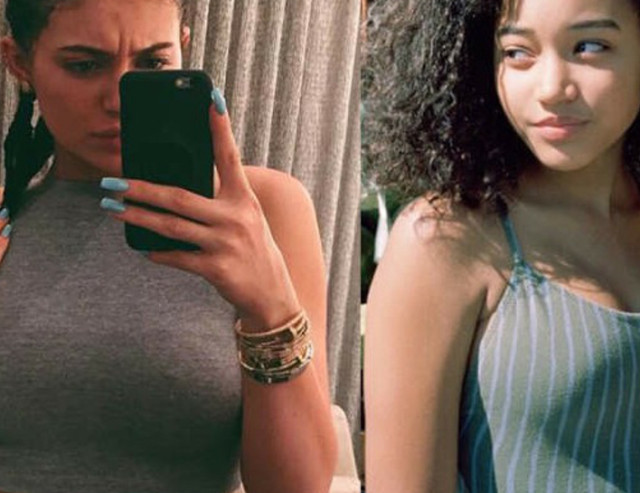Once again… we’re talkin’ bout good and bad hair.
Along with Spike Lee’s ‘Straight and Nappy’ musical piece in School Daze (1988) and Chris Rock’s Good Hair documentary (2009), African Americans’ hair issues lingered for decades in the media. With each generation, comes new epiphanies of “how I never knew what my real hair looked like” and “how I discovered my own hair could be beautiful.”
It’s a wonder why we don’t keep our young black girls far away from the television. At least, so that we don’t have to have this same conversation about black hair and beauty as each generation of women comes of age.
Clearly, the African American woman’s psyche and self-esteem is deeply affected by too many media images of black women with long weaves of straight hair.
It also stems from parents living in white neighborhoods, putting children in all white schools, and having to explain to those children why their unique appearance compared to the rest of the kids they grow up with is beautiful and special despite being the outlier.
“There’s a lot of profit to be made from that pain” said Melissa Harris-Perry, Tulane University political science professor, author, and columnist for The Nation magazine.
On her MSNBC show, she sat down with actress Nicole Ari Parker of Broadway’s Streetcar Named Desire, University of Pennsylvania professor Anthea Butler, cultural critic Joan Morgan, and CurlyNikki.com founder Nikki Walton to discuss the economics and politics of black hair.
Harris-Perry starts out going over several kinds of hairstyles — relaxers, weaves, locks, braids. Here, she’s obviously talking to people who aren’t black or who spent their childhoods isolated from black culture and beauty salons.
According to the stats, relaxers are down and the rising natural hair care product industry is a strong source for black women’s entrepreneurship. Black hair revenues are estimated at around $185 million dollars, although one third of this market belongs to major corporations L’Oreal and Alberto Culver Company, which manufactures Nexxus, Soft & Beautiful, Just for Me!, TCB, and Motions products.
But do black women focus too much on their hair?
“We’re vain! Everybody wants their hair done” said Nicole Ari Parker.
Parker adds that more black people should try what Solange Knowles describes as “get up and go.” Rather than feeling a need to get your hair styled at the salon or the natural hair shop, we should feel comfortable enough in our own beauty to spend a few minutes in our homes and wear our hair without too much deviation from the way it is when we wake up in the morning.
Nikki Walton suggests that’s the kind of community and support they try to build on her natural hair styles website CurlyNikki.
Many black women opt out of exercising to preserve their relaxers or fresh hairstyles.
When’s the last time you went on a run or played basketball with a group of black women?
The panelists emphasize that black women should develop a more active culture rather than let their hair dictate their lifestyles.
While it’s great to see a variety of black women of different ages and experiences having a discussion together, I wonder if we spend too much time talking about hair and divert our attention from other matters that could benefit from being fleshed out by the panel of ladies.
Rather than talk about black hair, I’d prefer to hear the panel of women discuss topics that are more pertinent to black communities – like the lack of black women’s representation behind the scenes of film and television or how the War on Drugs affects black families.
And if we, as a community, spend less money on hair, what else could we spend money on? Supporting black arts? Building community centers in our neighborhoods?
The overall goal of the program is to show that hair matters – and I agree to some extent, but just as long as we’re not so caught up in our hair that we forget about everything else.










It’s funny how Solange Knowles just went on a twitter rant about how she was tired of talking about natural hair. I love Nicole Ari Parker. Wish I was in NY to see Streetcar.